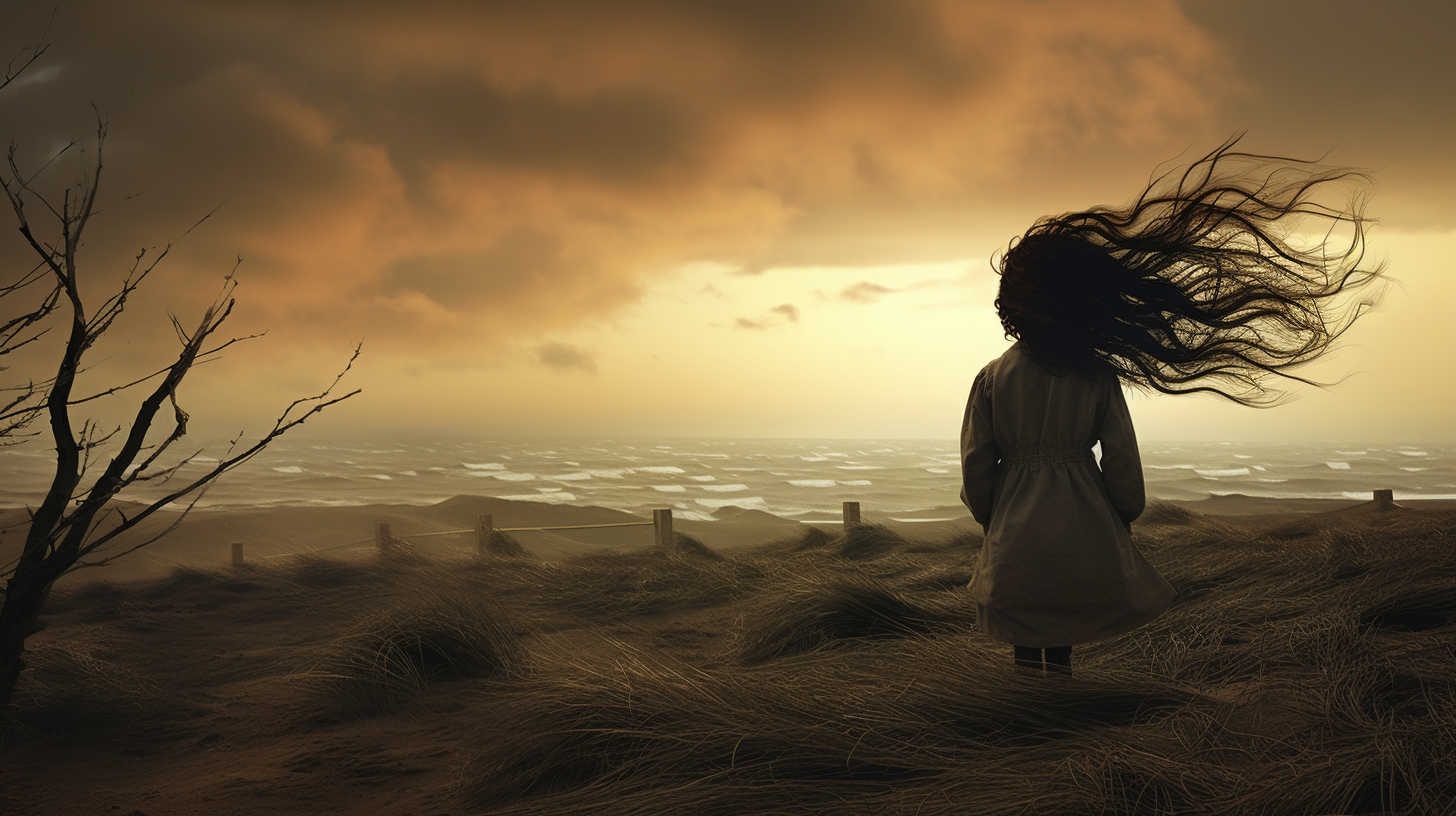The ghostly echoes of what was once a symphony now drift through a sullen landscape, carrying with them the mournful tales of our planet’s turbulent transformation. This is the requiem of the Earth’s dying breaths, narrated by the whispers of the wind – the very essence of our world’s now-lost language of weather.
In the forgotten corners of our present dystopia, the wind still speaks. Beneath the ashen skies and amidst the ever-rising tides, the breeze that once heralded the changing of seasons and foretold the farmer’s fortune now tells a more sinister story. Each gust, each tempestuous gale is now a missive of despair – a testament to the cries of a wounded world, speaking in hushed tones of calamities that were once mere murmurs of possibility.
But who listens to these whispers any longer? The weary ears of civilization have grown deaf from the relentless wailing of extreme weather events. Our global catastrophe, long foretold by the now romanticized seasonal cycles, has choked on its own heated breath. We allowed pollutive echoes to deafen us, our hands crafting a cacophony of carbon, silencing the delicate harmonies of nature.
To learn from the wind, we must first understand its language, but that vocabulary has been lost in the deafening silence that followed the Age of Storms.
The once predictable patterns have devolved into chaos. A soft breeze caressing the leaves would signal the start of an awaited rain, bringing relief and sustenance. Now, those same whispers escalate into howling warnings of another relentless hurricane, ripping apart what little we have left. Our ancestors knew how to converse with the elements, reading the skies like an open book. What unfortunate heirs we are that we cannot comprehend even the footnotes in this saga of destruction.
Amidst this cacophony of climate grief, there lies an unsung narrative – the tale of the zephyrs and their secrets. Did the winds not forewarn us of the Great Thaw, when the polar ice wept into oblivion, swelling the seas with its sorrow? Did the gales not groan in anguish as the Great Drying turned once-mighty rivers into withered veins upon the Earth’s parched skin?
Oh, how the whistling of the wind mimics the haunting laments of lost ecosystems, their voices silenced forever in the Anthropocene’s greatest folly. With each cyclone’s eye that stares hollowly upon ruined cities, the weather seems to ask us – did the siren songs of progress and hubris drown out the wisdom of restraint?
The voices of the weather – now more elegy than ever – sing a history written in the scars of natural disasters left unchecked. Their tales, if we dare listen, resonate with the harsh truths of days when the drama of a climate-stricken world was mere science fiction. But no more. This dissonance between what was and what has come to pass is no accident, no fluke of fate. Our own hands penned the preface to this tragic narrative.
As the wind’s whispers fade into the silence of extinction, they leave an indelible mark on the few who remain to bear witness. And though this mark sears our very souls, we mustn’t turn a blind eye, for the language of the weather is the last echo of a world that once was. A world where the wind’s wisdom could sway man’s ambition, where the gentle murmur of a cool breeze could lull the young to sleep, instead of casting an eerie prelude to relentless heatwaves.
There’s poetry in this apocalypse, a harrowing beauty in the storm’s eye — a reminder from the wind that it was once not just a bearer of tempests but a messenger of life’s rhythms. Each silent roar of thunder, each whispering gust carries the remnants of that lost language, the vocabulary of our vanished seasons, speaking of the time when the weather was not our foe but a companion in the dance of existence.
It seems fitting, then, to conclude with the soft rustling of leaves and the gentle moan of timber under wind’s caress – a soliloquy of what remains. We are the audience to the final act of a play that’s too far gone, with billowing curtains of gales closing in, signifying an end to humanity’s grand performance on a planetary stage.
